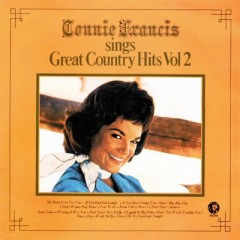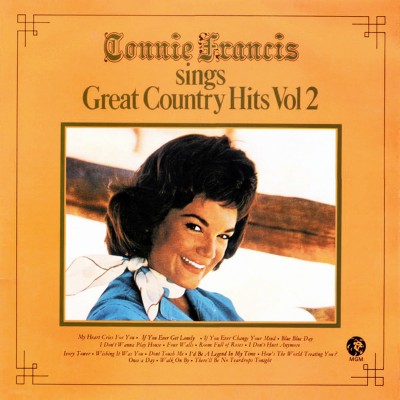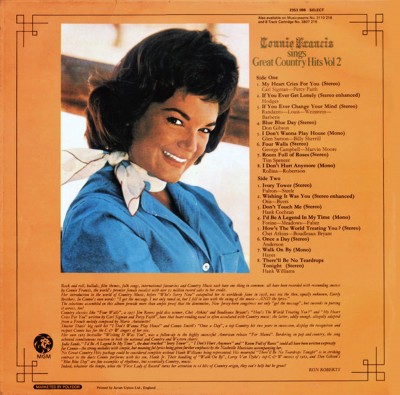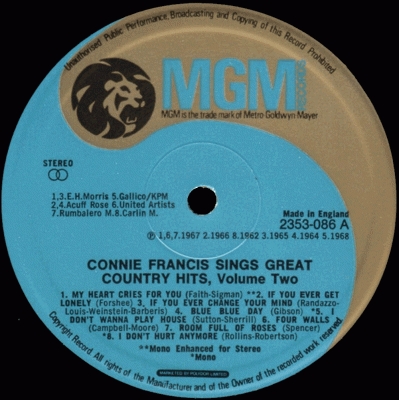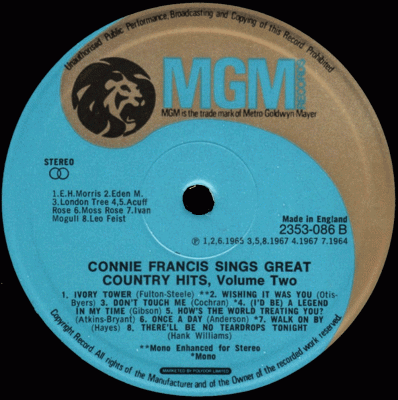Rock and roll, ballads, film themes, folk songs, international favourites and Country Music each have one thing in common: all have been recorded with resounding success by Connie Francis, the world's premier female vocalist with over 50 million record sales to her credit.
Her introduction to the world of Country Music, before "Who's Sorry Now" catapulted her to worldwide fame in 1958, was via the then, equally unknown, Everly Brothers. In Connie's own words: "I got the message. I not only tuned in, but I fell in love with the swing of the music——AND the lyrics."
The selections assembled on this album provide more than ample proof that the diminutive, New Jersey-born songstress not only "got the message", but succeeds in putting it across, too!
Country classics like "Four Walls", a 1917 Jim Reeves gold disc winner, Chet Atkins' and Boudleaux Bryant's "How's The World Treating You?" and "My Heart Cries For You" written by Carl Sigman and Percy Faith", have that heart-rending vocal so often associated with Country music: the latter, oddly enough, allegedly adapted from a French melody composed by Marie Antoinette!
Skeeter Davis' big 1096 hit "I Don't Wanna Play House" and Connie Smith's "Once a Day", a top Country hit two years in succession, display the recognition and respect Connie has for the C&W singers of her sex.
Her own 1965 bestseller, "Wishing It Was You", was a follow-up to the highly successful American release "For Mama". Bordering on pop and country, the song achieved simultaneous reaction in both the national and Country and Western charts.
"I'd Be A Legend In My Time, the dual-tracked "Ivory Tower", "I Don't Hurt Anymore" and" Room Full of Roses could all have been written expressly for Connie——the strong melodies with simple, but meaningful lyrics being given further emphasis by the Nashville Musicians accompanying her.
No Great Country Hits package could be considered complete without Hank Williams being represented. His mournful "There'll Be No Teardrops Tonight" is in striking contrast to the duets Connie performs with his son, Hank Jr. Their handling of "Walk On By", Leroy Van Dyke's top C&W succedss of 1962, and Don Gibson's "Blue Blue Day" are fine examples of rhythmic, but essentially Country, music.
Indeed, whatever the tempo, when the 'First Lady of Record' turns her attention to 16 hits of Country origin, they can't help but be great!
RON ROBERTS





